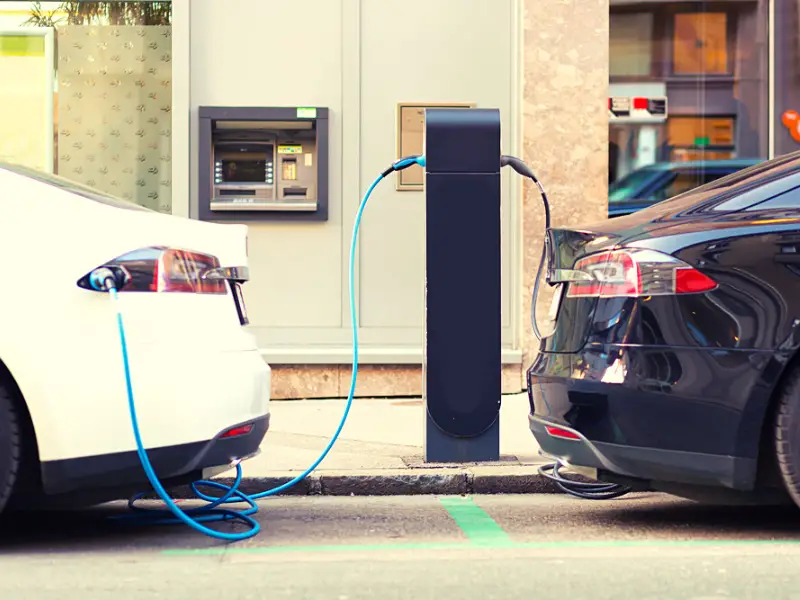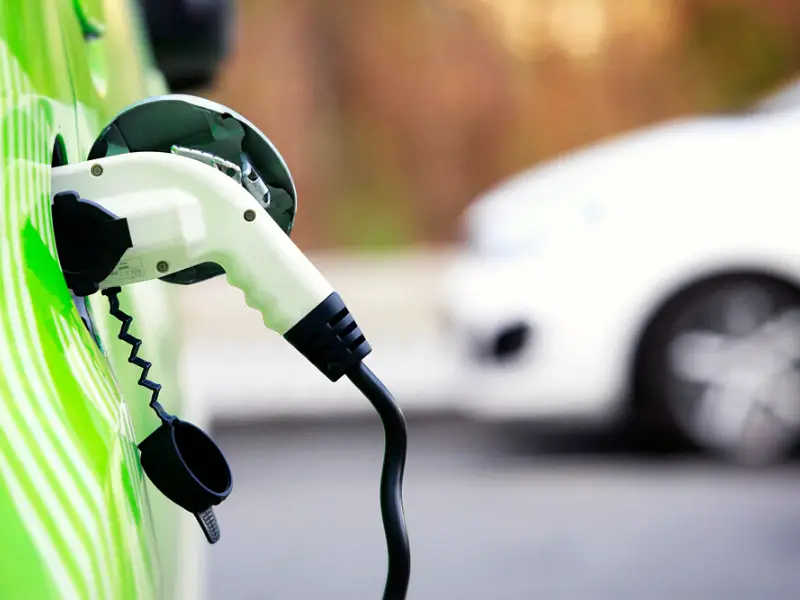The age of battery-powered cars is upon us. For example, in the United Kingdom, 5,000 new electric cars were registered each month in 2018 (statistics from the Society of Motor Manufacturers & Traders). With many countries offering tax breaks and financial help for installing a charger at home, electric-powered battery cars are becoming an increasingly attractive option for many car drivers.

Electric cars are growing in popularity, and it’s easy to figure out why. Electric vehicle sales are increasing slowly but steadily, with many car owners opting for an electric vehicle or a hybrid electric vehicle over an internal combustion engine vehicle. The majority of people are tired of politics, whether it’s global warming or the environment overall. The result? People want to use less gas, and they want something more affordable all around.
However, there is still some misconception about how electric cars work. There are a few truths that car owners who wish to switch to electric cars need to be aware of before making any big buying decisions.
Trends in the Electric Car Industry
The market for electric models reached $39.8 billion in 2018 and approximately $1.5 trillion by 2025. Also, 97 million electric cars are expected to be sold worldwide by 2025.
Electric car trends are constantly shifting because of new technological advancements. Here are some trends in the electric car industry today:
Battery Longevity
The average cost of running one gallon of fuel is $3.70 in the United States (and it costs more than that in other countries). And if you drive about 10,000 miles per year, you will spend close to $1,000 per year on fuel alone!

On top of this high price tag is an even more expensive running cost: tires for fuel-powered cars go through a lot more wear and tear than those on electric cars because they need to withstand hard impacts created by hard braking or sudden acceleration.
A typical battery lifespan for an electric car is 10 to 15 years. Some models may last only 10 years, while others can last up to 20. These numbers are based on the specific model and usage of the vehicle.
Declining Price
With the present trend of lower-cost batteries, car costs would decrease as well. Additionally, the tendency for the next few years is to create completely electric models, phasing out hybrids. Numerous automobile manufacturers are investigating this trend over the next decade to reduce the impact of fossil fuels on our environment. The energy innovation modeling forecasts that electric cars will account for between 60% and 75% of all newly built cars in the United States.
Some people worry about cost when they think about purchasing an electric car; however, in most cases, there are tax incentives or government help that can help with this expense.
On top of this high price tag is an even more expensive running cost: tires for fuel-powered cars go through a lot more wear and tear than those on electric motors because they need to withstand hard braking or sudden acceleration.
Advantages of Electric Cars
Environmental
Electric cars aren’t exactly “greener” than cars using fossil fuels. That’s not to say that the eco-friendly lifestyle is a lie, but simply that there are so many variables regarding the environmental impact of each vehicle. The amount of emissions produced by manufacturing and repairing each type of car also plays into this puzzle, as does how you use your car daily.
With global warming becoming a serious issue, people have recognized the importance of directly embracing renewable energy projects and more sustainable transportation modes. Pollution is a significant factor in why consumers lean toward an electric motor instead. Many of the pollutants emitted by fuel-powered automobiles are harmful and contribute to human health problems and thousands of premature deaths each year.
Long Term Financial
The cost of recharging an electric vehicle is another perk of making the switch from a fuel-powered vehicle. According to the Advanced Vehicle Testing Activity Database, electric automobiles cost 7.8 cents per mile compared to fuel vehicles, costing 15.9 cents per mile.

It’s worth noting that the United States consumed roughly nine billion barrels of gasoline last year, two-thirds of which was used for transportation purposes. Once electric cars go mainstream, the oil industry will be disrupted the most.
Electric Car Concerns
Range Anxiety
Perhaps the biggest concern consumers have with electric cars is the limited driving range of their batteries. So long as you’re near a charging station, driving an electric car is easy and beneficial.
But if you don’t have access to a charging station or need to drive for longer than your battery can last, you might need to think about one of the other problems associated with electric cars: costs. If you get caught in a situation where you have to find another method of transportation and someplace to stay, the costs will start adding up quickly. Charging stations multiply in number, but they’re not always located in convenient places.

Infrastructure Development
PlugShare and ChargePoint are popular apps for finding a public charging station. Although these apps alleviate some of the tension associated with range anxiety, the question remains whether or not an electric automobile is a practical option in the long term.
ChargePoint has more than 66,200 charging stations, but because the number of electric cars expected on the road in the next few years is multiplying, there isn’t enough infrastructure to support them all.
Charging Time Trauma
Another concern is charging time. The comfort of going to any gas station within a few miles and filling it up in less than five minutes is the beauty and convenience of an internal combustion engine. In contrast to electric cars, which have a reputation for taking a long time to charge.

Even the most recent electric cars still require an overnight charging session to have a fully charged battery when driving around town. Even the fastest commercial charging stations need at least hours to charge any battery-powered vehicle appropriately and safely fully. This issue puts to light whether an electric car would be sustainable enough from the aspect of time and convenience.
Short Term
Finally, an issue with electric automobiles is the initial cost, often more than any other vehicle. When comparing the initial prices of an electric and non-electric vehicle, the upfront costs are frequently the largest obstacle to changing to an electric car.
Purchasing an electric vehicle is generally more expensive upfront. For instance, shoppers interested in acquiring the least expensive Tesla Model 3 will spend $42,900 upfront, roughly 19 percent more than the typical new automobile in the United States, which is now around $36,115.
Author’s Note
In general, the development of electric vehicles will continue to expand and evolve in the future years.
In due course, electric cars will not only penetrate the market, but they most likely become the preferred mode of transportation, mainly as efforts are made to develop more environmentally friendly ways of moving around.
Here Are Some Eco-Friendly Tips You’ll Love: Go Green and Save Money, Carbon Footprint and How to Reduce It, Compostable Bags


4 thoughts on “Buying an Electric Car: What You Need to Know”